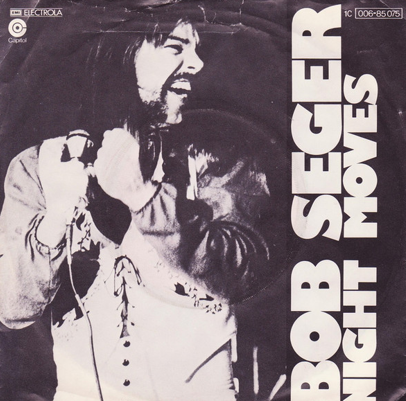Once again it’s Sunday and time for another installment of my weekly imaginary music time travel feature, which visits six different tracks from six different decades and in different flavors. Before getting underway, I’d like to announce a short hiatus of the blog. In a couple of hours, my family is leaving for a mini-vacation to experience the solar eclipse. I’ll resume posting and commenting on Wednesday.
Wayne Shorter/Blues A La Carte
Today, our zig-zag excursion starts in August 1960, which saw the release of Introducing Wayne Shorter, the debut album by the jazz saxophone great as band leader. It was the first of more than 20 additional albums Wayne Shorter recorded in that role. He also played as a sideman with the likes of Art Blakey’s Jazz Messengers and Miles Davis’ Second Great Quintet. In 1970, Shorter became a co-founder of jazz fusion band Weather Report. He passed away in March 2023 at age 89. Let’s listen to the neat Shorter composition Blues A La Carte, the opener of his aforementioned debut as band leader.
Gianna Nannini/Latin Lover
On to Italian pop and rock singer-songwriter Gianna Nannini who enjoyed a good deal of popularity in Italy, Germany, Austria and Switzerland from the late ’70s until the mid-’80s. Including her 1976 eponymous debut, Nannini has released close to 30 albums. In 1979, she scored her first hit with America, a song off her sophomore album California. Nannini entered my radar screen in 1982 with the title track of her fifth album Latin Lover, a catchy pop rocker featuring her characteristic raspy vocals.
Dirty Honey/Won’t Take Me Alive
Let’s jump back to the present with some sweet classic style rock by Los Angeles band Dirty Honey. Founded in 2017, they are reminiscent of groups like Aerosmith, Led Zeppelin and The Black Crowes. Dirty Honey consist of co-founders Marc Labelle (vocals), John Notto (guitar) and Justin Smolian (bass), along with Jaydon Bean who last year replaced original drummer Corey Coverstone. Off their second and most recent studio album Can’t Find the Brakes, released in November 2023, here’s Won’t Take Me Alive, credited to Notto, Smolian and Labelle. This r.o.c.k.s.!!!
Big Joe Turner/Shake, Rattle and Roll
Time for a dose of ’50s rock & roll! To get it we shall go back 70 years to April 1954. That’s when American blues shouter Big Joe Turner released his single Shake, Rattle and Roll, which became his second to top Billboard’s Hot R&B Singles chart. The song was written by R&B musician and songwriter Jess Stone under the pseudonym Charles Calhoun. In June of the same year, Bill Haley & His Comets released a cover of the song, scoring their second hit after Rock Around the Clock. Feel free to snip along!
Janis Joplin/Cry Baby
Our next stop takes us to January 1971 and the second solo album by the incredible Janis Joplin. Best known for her cover of Kris Kristofferson’s Me and Bobby McGee, the album Pearl appeared three months after her death in October 1970 at age 27. Here’s Cry Baby, another gem from that album. Co-written by Bert Berns and Jerry Ragovoy, the song was first recorded in 1963 by Garnet Mimms and the Enchanters. Joplin’s kicked up the intensity level a few notches – damn!
Crash Test Dummies/Mmm Mmm Mmm Mmm
And this brings us to our sixth and final stop. For this let’s head to April 1993 and God Shuffled His Feet, the sophomore album by Canadian alternative rock band Crash Test Dummies. Mmm Mmm Mmm Mmm became the album’s first single and the group’s biggest hit to date. It was written by lead vocalist Brad Roberts, who with his distinctive bass-baritone voice largely defines the band’s sound. The group exists to this day as a touring act.
This post wouldn’t be complete without a Spotify playlist. Hope there’s something here that tickles your fancy. See you when I’m back on Wednesday!
Sources: Wikipedia; YouTube; Spotify


